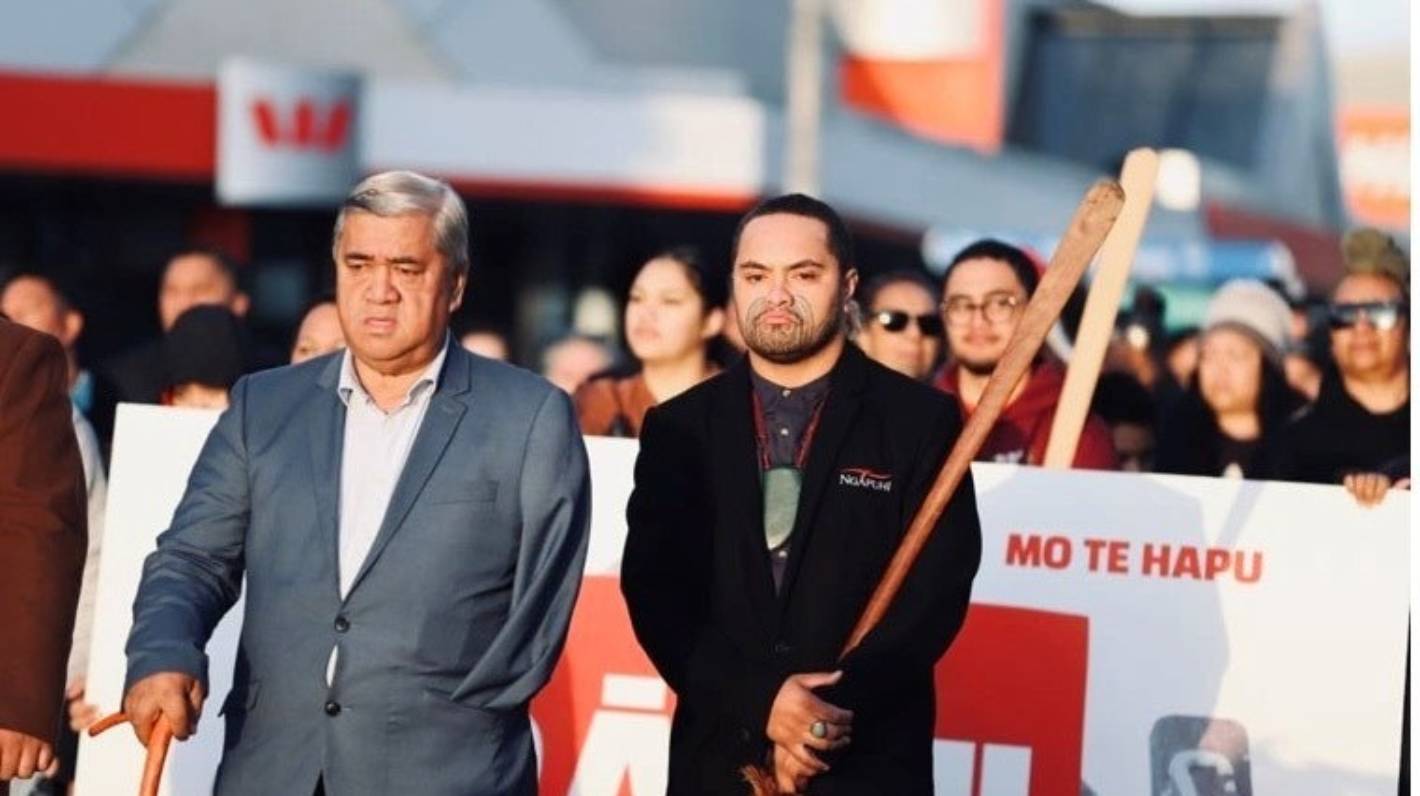- Local hapū put a customary ban on gang violence in Kaikohe a fortnight ago
- Since then, there has not been any reported gang violence
- The tikanga Māori approach to gang violence could work in Auckland.
A rāhui on gang violence in Kaikohe has successfully simmered gang tensions in the Northland town.
The rāhui, or customary ban, was placed on the town on May 27 by Te Tiahotanga, a collection of five local hapū, backed by a hīkoi of community members.
It came after shots were fired through the town on May 24, as part of rising tensions between the Killer Beez and the Tribesmen – thought to be connected to shootings in Auckland.
In March there was a vicious daylight assault on a Tribesmen member, followed by a series of shootings where one person was shot in the leg.
supplied
The rāhui was placed over Kaikohe on May 27, starting with a hīkoi, or march, through town attended by about 250 people.
READ MORE:
* Unique rāhui bans gang violence in Northland’s Kaikohe after shootings
* Auckland police sent to Kaikohe after shootings, worrying leaders in both places
* ‘Very on edge’: Auckland residents ducking for cover in fear of city’s shootings
But since the rāhui has been placed, there have been no reports of gang violence, spokesman Mane Tahere (Ngāti Tautahi) said.
“We’re pretty pleased with the response so far, or the lack of violence. From our perspective, it’s been intentional and it’s been due to the rāhui.”
People are now touching wood, in the hope the peace will continue, he said.
Supplied
Te Tiahotanga spokesperson Mane Tahere, pictured on May 27 as the rāhui was laid down, says tikanga is respected by gang members.
The gang members respect tikanga Māori (customary procedures), or at least know about them, Tahere said.
“When the rāhui is put in place, the expectation is put back on the individual [to do the right thing].”
Kaikohe-based Far North District councillor, Moko Tepania, said there is strength in the five hapū uniting for a common goal.
But he acknowledged police have also increased their presence in the town, making a number of arrests – which can also make gang members go to ground.
Tahere believed a rāhui could also work in Auckland – which has seen at least 20 shootings this year – if tangata whenua were interested.
“It’s a little different because of the size and geographical situation [in Auckland], but the sentiment, the tikanga, the processes – they’re all the same.
“I would encourage them to look at it.”
Aucklanders needed to realise the rāhui is not about punitive action, Tahere said.
“Sometimes the community has lots of different voices and they call for punitive measures – from a tikanga perspective it’s slightly different.
“It’s not ‘them and us’, we’re saying it’s ‘us and all of us’, including individuals with Māori whakapapa.”
Tahere said Te Tiahotanga is now holding events to help Kaikohe residents – from gang members to youth – strengthen their knowledge of whakapapa (geneology) and reconnect with their marae.
The first event would be a festival, where people can learn whakapapa and participate in kapa haka.




